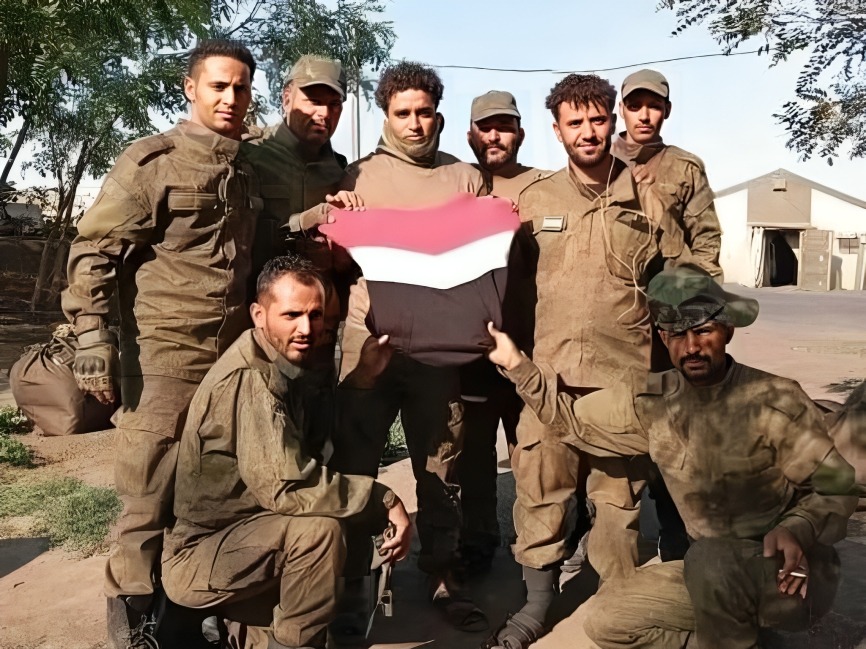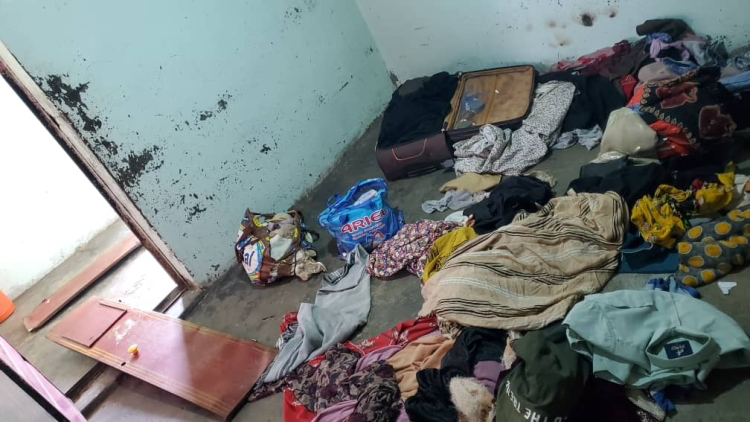
Barran Press
A recent report from an American research institution, published on November 28, 2024, highlights the recruitment of Yemeni fighters by Russian forces, facilitated by their growing relationship with the Iran-aligned Houthi movement, which is internationally designated as a terrorist organization.
The report, released by the Atlantic Council and reviewed by Barran Press, states that Yemeni recruits are being promised high salaries and even Russian citizenship for roles in engineering and security through a company linked to the Houthis. Ultimately, these individuals are coerced into joining the Russian military and deployed to the front lines in Ukraine.
The Atlantic Council, an independent research organization based in Washington, predicts that the Houthis stand to gain financially from this recruitment effort, while also providing training for Yemenis in areas under their control, supervised by the Russian military.
According to the report, the recruitment of Yemenis is part of a broader Russian strategy to utilize migrant recruits from Yemen, as well as Nepal, India, and North Korea, to offset significant battlefield losses.
The authors of the report assert that "the recruitment of Yemeni fighters is merely one component of the emerging relationship between the Houthis and Russia, which has gained importance since October 7, 2023."
In previous reports, it was revealed that Iran was mediating a potential agreement in which Russia would supply advanced weapons, specifically P-800 Oniks anti-ship missiles, to the Houthis. While there is no evidence of such transfers occurring yet, U.S. Special Envoy to Yemen Timothy Lenderking recently confirmed that Russia is actively seeking to engage with the Houthis regarding potential arms transfers.
In October, reports surfaced that Moscow planned to provide the Houthis with a shipment of small arms worth $10 million. Shortly after these claims emerged, other reports suggested that the Kremlin was also supplying the group with intelligence, including satellite data, to support their ongoing campaign against maritime traffic in the Red Sea and surrounding waterways.
The Atlantic Council report characterizes this relationship as "a partnership of convenience rather than a full strategic alliance," noting that "Moscow's government is pragmatic when it comes to the group."
It is likely that Russia will continue to support the Houthis as long as they do not directly target Saudi or Emirati interests and remain a valuable tool in Russia's efforts to undermine U.S. influence.
Simultaneously, the Russian government is hedging its bets by continuing diplomatic engagement with other factions in Yemen, including the UAE-backed Southern Transitional Council, which supports a large-scale military intervention against the Houthis.
The report suggests that the relationship between the Houthis and Russia should be viewed as part of a larger strategic effort by U.S. adversaries—Russia, Iran, North Korea, and China—to strengthen their alliances and challenge U.S. and allied interests in the region.
From Moscow's perspective, cooperation with the Houthis offers multiple benefits beyond merely compensating for losses in Ukraine. By supplying the Houthis with weapons and intelligence, Russia is also encouraging destabilizing activities in the Red Sea, viewing the Houthi maritime campaign as an opportunity to pressure Western commercial shipping and divert U.S. attention from its war in Ukraine.
Additionally, the growing ties between Russia and the Houthis grant the Kremlin further leverage over key regional players, such as the UAE and Saudi Arabia, both of whom have a vested interest in ending the war in Yemen.
While Moscow has long maintained strategic and economic relations with these Gulf states, especially through the OPEC+ oil cartel, it could leverage its burgeoning relationship with the Yemeni rebels to exert pressure on them, especially concerning their ties with Washington.
The report concludes that "the U.S. and its partners and allies should be concerned about the ongoing cooperation between the Houthis and Russia, particularly as it may expand the Houthis' capacity to threaten international shipping and U.S. assets in the region."
It adds, "Even without advanced Russian weapons, the Houthis have managed to severely disrupt maritime trade, causing a 66% decline in traffic through the Suez Canal over the past year."
The introduction of systems like the P-800 Oniks or even new medium-range ballistic missiles from Moscow could create even more chaos. Even if Moscow is hesitant to send such advanced systems, it may also provide the Houthis with greater military manufacturing expertise, potentially making the group's local military supply chains more self-sufficient and robust.
Such exchanges would be difficult to detect given the limited U.S. intelligence in Yemen. This could make the rebels less reliant on Iranian support and possibly more willing to launch strikes, even if such operations do not politically benefit their backers in Tehran.





